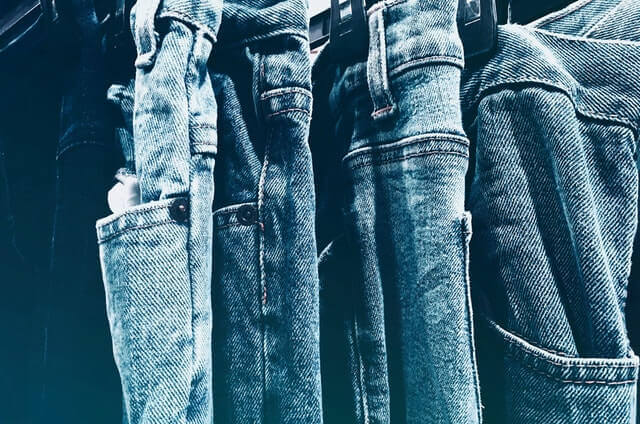How Attributes Help You Organize Inventory and Sell More Products.
Understanding Attributes

Someone comes into your store and asks you for a Blue baby’s blanket. Your kids want building blocks made by Lego. You are in the market for a new car. You are looking for a fire engine red sports car with 2 doors and turbo. Maybe you’re in the market for a significant other. That person must have blue eyes and blonde hair, greater than five feet six inches.
So what am I rambling about? Why did the following paragraph have so many distinct adjectives? What is this even about? Attributes.
So What Are Attributes?

So what are Attributes? Attributes are what defines an object to its core. They separate that specific object from all the others like it, by defining different characteristics specific to that object. Let us take a look of an example. You are looking for a coat. You walk into a department store. The first thing you are going to do is go to the clothing section and find the coats. Now that you found coats you are going to look for a specific one. How will you know when you found the coat you want? By its attributes. If you have a 34 chest and that is what you are looking for, then that is an attribute of the coats. Maybe the insulation needs to be down feathers. That is another attribute. Finally, you want a blue coat. Yet a third attribute. Combining all three of these together will help you find the desired item you are looking for.
How Will Attributes Help in a Consignment Store?

How will Attributes help in a consignment store? This is a really good question. The answer is simple. Like all other stores, it will help sell items that people are looking for. It will increase revenue and foot traffic. Here is how.
A customer comes in and says they want a Pre-War Lionel Train Set. It so happens you do have a train set in the store but you have not entered what kind of set that is in the system. When your employee accesses the set in your inventory, it just says train set. They tell the customer they have no idea what kind of set it is and the customer leaves without purchasing. As it turns out the set you have actually is a Pre-War Lionel train set. Had you entered this information into the system, your employee would have known this and told the customer, and chances are the customer would have made a purchase. Furthermore, this would set a precedent with the customer showing how organized your store is and how knowledgeable your staff is with the inventory in the store. If that train set had sold this might even make the customer feel like they can come back again looking for more specific things thus creating a repeat customer. Finally, the customer’s satisfaction may even result in them telling another potential customer through word of mouth, thus having a new customer come into the store. All because you used attributes to define your items!
Do Attributes Benefit in Any Other Way?
Yes, they do, through a feature called the Wish List. I once went into a store looking for a Coffee table. I wanted one that was solid wood, made of oak with a dark red stain or finish. The store said they did not have one like that but would notify me when one came in. I left them my name and number and went home that day sad I could not find what I was looking for.
A few weeks later I get a call from the store saying they had the table I was looking for. If I was interested they would hold it for me and I could come to pick it up later. When I got off work I rushed right over to get the table and left a satisfied customer. I was really appreciative that they took me information and contacted me when the table came in. I assured them I would be a returning customer based on the satisfaction of how they handle my request.

This scenario is basically the same type of scenario Liberty Consignment supports. By getting the specifics a customer is looking for, a store can use the wishlist connected to an account and enter in the item with those specifics. When that specific item comes in, Liberty will alert the store that a particular set of customers who have wish lists filled out meeting that criteria are wanting to purchase the item. At this point, the store can reach out to the customer alerting them of the item they just received.
So Then That is it, Attributes Only Help in Two Ways.
No. Attributes can also help with minimizing in loss of money. Allow me to explain. Let us say we have two stores who sell the exact same jeans. Store A uses attributes, store B just uses the attribute of size, and nothing else. Both stores sell Calvin Klein Jeans, Levis, and Gap. Sizes all varying. Both stores also started 90 pairs of jeans, 30 of each brand. Both stores have a rule, that once below 10 pairs of jeans, they order more. Both stores sell exactly the same amount of jeans for the month. Twenty Four pairs of Levi jeans. When it comes time to order, Store A sees they are below the 10 pairs of Levis and order more. Store B who doesn’t keep track of brands does not order more, because, in their eyes, they are not below 10 pairs of jeans. Levis jeans are a hot commodity and keep selling each month. Store A continues to bank money selling primarily Levis, and store B has mediocre sales because it has no idea what brands are selling the best, and sees it’s Par for jeans to be above the required levels for ordering more jeans.

Conclusion
Using Attributes can be a valuable thing. It can help to increase revenue, repeat customers, and overturn of inventory. It helps to decrease ordering the wrong product, and overall satisfy your customers.